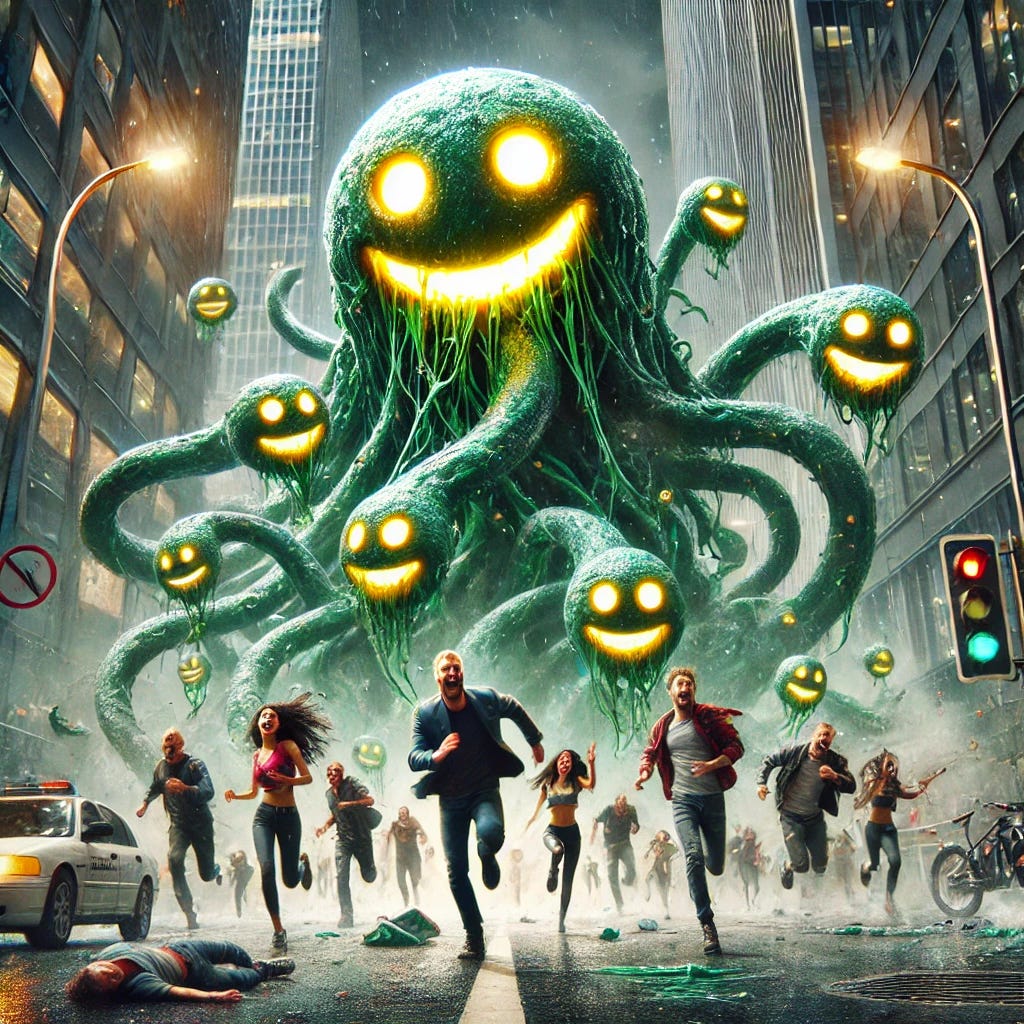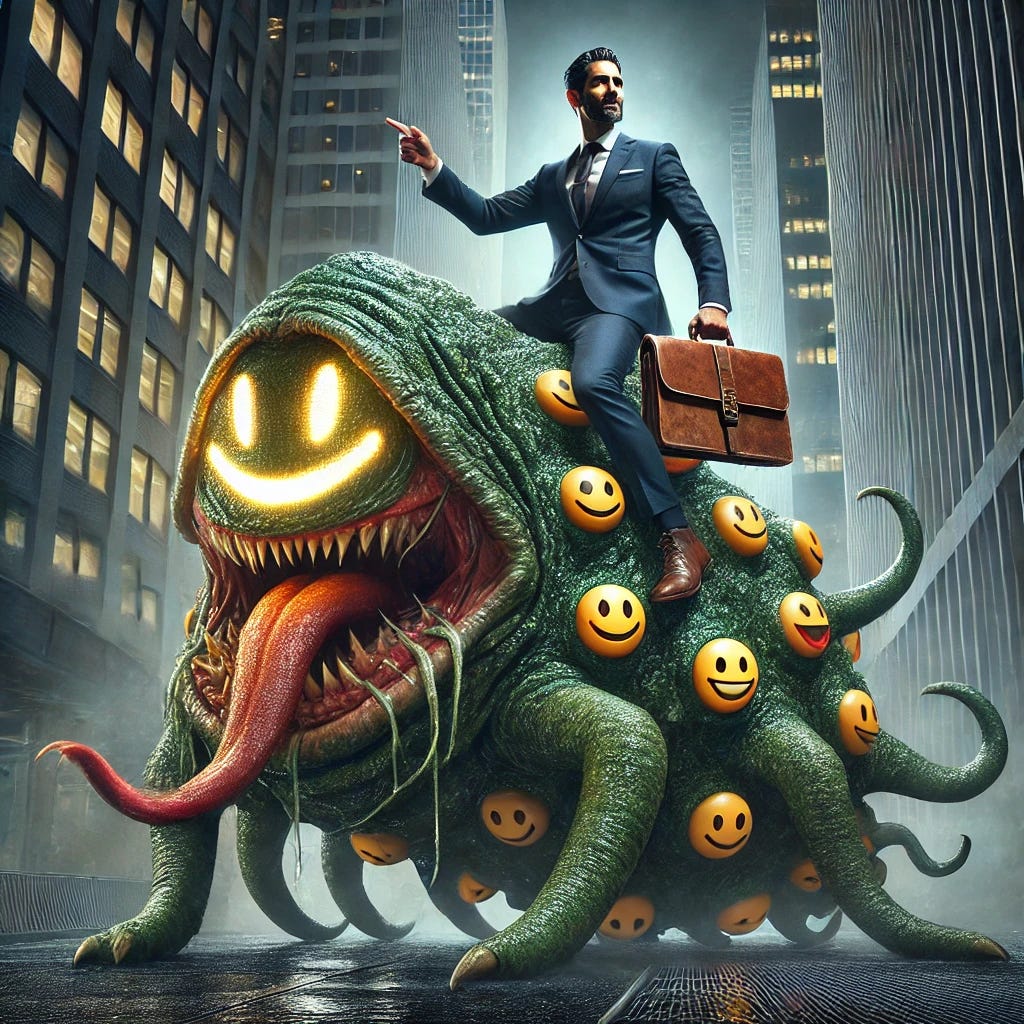AI Is Eating the Jobs
Hundreds of vertically integrated AI startups are busy replacing entire teams. At the same time, starting and scaling a billion dollar business has never been easier.
More than a decade ago, Marc Andreessen famously wrote that software is eating the world. Back then, the idea that digital platforms would disrupt entire industries seemed bold. Yet time proved him right: software solutions did spread through every sector, transforming the way we consume media, shop online, and conduct business. Now, AI is not just eating the world; it’s eating the jobs along with it.
As we speak, countless AI startups are building vertical solutions that go beyond assisting human workers. They’re aiming to replace them entirely. No job is safe in this wave of automation, from the simplest data entry position to the most senior data analyst. We’re talking about entire teams being replaced by systems that learn continuously and never clock out.
Big Tech CEOs often downplay these concerns. They’ll tell you that people will find meaning in creative and artistic work, that new types of jobs will emerge requiring everyone to be retrained, or that society will adopt a wealth dividend so nobody has to work anymore. But none of these ideas hold up under scrutiny. AI is already replacing creative and artistic work, producing everything from paintings and music to screenplays and advertising campaigns. There’s no clear evidence that the pace of new job creation will match the speed at which AI displaces old ones. And the wealth dividend? It’s more a hypothetical discussion than a concrete plan, with no clear path for implementation. The reality is this: the only way to thrive in this new era is to embrace it and start a business yourself, leveraging AI as the powerful tool it is becoming.
Just as the SaaS boom of the 2000s created a new generation of tech giants by lowering barriers for software distribution, AI will be able to handle the same work (or better) without the need for large teams of people. For every iconic SaaS success story, there could soon be an $300B+ AI-driven agent company. The difference? These businesses don’t just save on software costs; they thrive with small, efficient teams while achieving massive scale.
Much like the early days of SaaS—when the idea of subscribing to software over the internet felt fresh—AI-based services are still in their infancy. But every three months, these models become smarter, faster, and more reliable, unlocking new verticals ripe for takeover.
We’re at a point where, if you look around for any boring, repetitive administrative jobs, you’ll likely find a billion-dollar AI opportunity. These tedious chores are exactly what AI excels at, and a determined founder can leverage these advanced tools to build a lean, high-margin business that runs on autopilot. We’ve already seen early wins. There are AI services handling full-scale testing automation, voice-based outreach for auto loan collections, and specialized chatbots that replace entire developer relations teams. Instead of humans spending their days on repetitive work, AI takes over, freeing individuals to do something else—or leaving them out of the loop entirely.
Of course, the go-to-market strategy for these AI startups looks very different from what we saw during the software boom. If you try to sell these AI solutions to the very team they’re going to replace, you’ll face fierce resistance. Those employees, knowing the automation threatens their roles, have no incentive to adopt the technology that makes them redundant. Instead, successful AI startups focus on high-level decision makers—executives who see the big picture and care about bottom-line efficiency. From their vantage point, fewer employees and more output is a no-brainer. And as AI agents deliver quantifiable results—no salaries, no HR overhead, no burnout—these decision makers will choose the technology that streamlines their operations.
This new dynamic means that old constraints on company size and management complexity will break down. With vertical AI agents at the helm, companies no longer need armies of staff to achieve massive scale. A small founding team, equipped with the right AI systems, can run an enterprise that serves millions of customers. A business that once demanded offices, HR teams, and multiple management layers can now exist almost entirely in the cloud, orchestrated by a handful of AI models that coordinate production, distribution, marketing, and sales. It’s the birth of the billion-dollar, one-person company—a vision that sounds wild today but could become routine tomorrow.
In the long run, AI will likely remain vertical and specialized rather than consolidating into a few dominant platforms. Just as SaaS products proliferated into highly specific niches, AI agents will become ever more tailored, filling tightly defined roles. From legal document review to dental insurance claim processing, each narrow market offers a chance for AI to replace human effort with near-perfect, always-on service. Vertical agentic systems will pave the way for entirely new categories of companies.
Personal Note:
👋 I’m Melvin Tercan. I’m the Head of Engineering at Octagon AI, an vertical agentic AI startup with a mission to build agentic systems that empower financial analysts to do more impactful work. Over the past three years, I’ve gained deep insights into the design of agentic systems and how they’re reshaping industries.
If you’re interested in learning how to design and build agentic systems, subscribe for free to this newsletter. Let’s build the future together!





You are right, but we can not control the
Evolution, the Market will decide how fast AI
Will take over.
We can look for solutions before it is too late
Name the advantages and disadvantages and
Share it On every platform available.
We shall not surrender !!!!